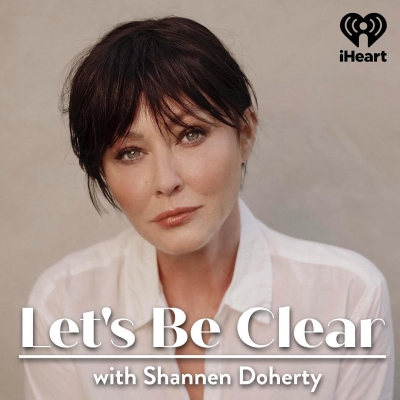

Galerij Links:
http//: 2023: Iona Wolff (Square Smile)
veryone knows the story of Hamlet. But few know the inspiration. Shakespeare had three children with his wife Anne Hathaway. The eldest, a girl named Susanna. The later two, twins, named Judith and Hamnet. In the summer of 1596, Hamnet died tragically at the age of eleven. In a fever of grief, four years later, Shakespeare bore the words of Hamlet. He flipped the script and told the story of a son haunted by the death of his father, all the while he was the father haunted by the death of his son. Maggie O’Farrell fills in the blanks of that real story with her award-winning novel Hamnet.
Now that story can be lived through thanks to the adaptation by Lolita Chakrabarti, the woman who most recently wrote the stage script for Life of Pi. It’s being transferred to the West End after just four months in Stratford: Hamnet is a hit before opening night.
A story told over a period of 20 years, the show has all the staples of a play written by the bard himself. There’s mystery and magic, a forbidden love story, and a tragedy all too heavy to bear. But don’t let the title fool you. Hamnet is its name, and Shakespeare walks the stage, but the spotlight falls on his wife, Agnes Hathaway. (A name change taken by creative liberties of O’Farrell)
The woman at the edge of the forest, Agnes has the ability to look at a person and see right through to their soul. She is played by Madeleine Mantock, a woman not unfamiliar with magical roles – most recently, a witch in the Charmed reboot. We sat down with the star of the show to discuss how she went from competitive disco dancing to taking centre stage in the theatrical event of the year.
What made you want to perform?
Where I grew up there was no theatre. Then a man called Jordi Guitart came to my dance school to do a dance masterclass. He had all this knowledge and all this essence; I wanted to be like him. I remember being told, “You don’t really get to do it. It’s too difficult, it’s too competitive.” I was like, “Well, I will. Even if it was 10% or 5%, I will be part of the 5%.” I’ve kept that obnoxious drive since.What happens next after this discovery? Do you find theatre or keep dancing?
It was still only dancing at that point. I used to be a competitive freestyle disco dancer, which is quite niche. It’s like if you brought Strictly Ballroom into this century. You are spray tanned within an inch of your life. Your hair is scraped onto your head, and you curl it so you have this poof there. You’re wearing Swarovski crystals, crazy cat-eye makeup. You almost look like a peacock. You have this insane neon costume, which is bejewelled.You go to a regional leisure centre, and there are different judges placed around the room in a rectangle. There will be 20 of you in a heat, which is like a round, and you strut onto the floor and they play any random music and you just dance to it in a square.
That’s one heat. If you make it past that round, you do it again. By the final, you come on from the side doing tricks and flips and you dance forwards in a line. It’s a whole day, it’s a massive, massive industry. It’s very niche but the BBC made a documentary about it.
How do you make your way to ArtsEd?
It wasn’t easy. But I wasn’t afraid to ask for help. When I was trying to get to school, I had to find a way to pay for it. When I was 18, school bills were ten and a half grand. At the time, regular university was three grand for a year. For a specialist course, that’s the difference you needed to pay.I was writing to people, I made my own kind of pamphlet. I ended up having seven or eight people who had given money to help me get onto my course. I used to write them update letters about what I was getting up to at school, and what we were doing.
My school had quite a lot of opportunities to go and be a chorus for big events. We performed at the BBC Proms, we did a Sondheim birthday celebration. I used to tell the people helping me, “I’m really doing this. This is what your help is doing.”
Who were the people that ended up helping?
One of them was a local councillor, Rod Kempster. I had written to him and asked for help. He was the person who said yes and signed the cheque. You have to build a personal connection with someone. You have to convince them that you can do this.When I went to ArtsEd, and I saw the other students, I knew it was where I was meant to go. But I didn’t get in. You’re not allowed to re-apply in the same year; you’re supposed to wait a year. But because I was so on it, I had auditioned first day of that cycle. So I wrote to them and said, ‘Please, can I try again?’
You’re a lady of letters…
Yes! They weren’t sure my singing was strong enough. But I said to them, ‘If you’re supposed to be the best school for musical theatre then you should be able to teach me.’ And then the head of music Dane Preece let me in! I was really tenacious. I really thought I was supposed to go there.
How was your experience?
It was amazing. I was obsessed, absolutely obsessed. But it was hard on your body. I had an added element because I couldn’t just be in school by 8am, finish by 6pm and go home and revise. I had to go to my job from 6pm until 11 and then order a Domino’s, and start again.When you were in school, what did you feel was your USP as a performer?
We were told to find our USP in school. I had a real one and an empty one. My empty one was that I had big hair. If you look at the shows in the West End now, there’s such an array of shows that allow black and ethnic minority performers to shine. At the time, we maybe had Hairspray or The Lion King. But I always felt that I was encouraged to step into that, as opposed to fading in or amalgamating and just being a chorus girl.What I feel like was different about me was that I’ve always looked for the connection. I’ve always been looking for the place to drop in emotionally. Sometimes it would get me into trouble; they used to think I was disruptive. I was sent to a counsellor. At times, they didn’t know what to do with me. That kind of training is to make us a really incredible chorus member or ensemble member. They almost want a conveyor belt of perfect machine performers. If you’re doing something else, you’re disrupting.
Aren’t they supposed to train you not just to be in the ensemble but be the star?
I think they want to decide who those people are. I think they thought I was a shiny, leggy girl that could have a moment in a show.
When does musical theatre become acting?
We always had guest tutors. One was a woman named Ebony Molina and I was obsessed with her because she was kind of like me. She was really tall and had big hair. She was definitely a special dancer that had a moment in the show. She had a part in Crazy For You, and decided to leave that role to work with a different choreographer. One spot opened and I got to audition. And I got it. By some miracle because it was a tap show and I wasn’t the strongest tapper. I got the job which meant I was allowed to get an agent early.Three months before that job started they started sending me out for auditions. An audition came up for Casualty, they were casting two new nurses. I went and had no idea what I was doing. I was training to be a chorus girl. But I got it. I dropped out of Crazy For You, and left school. By that Friday, I had cleared out my locker and that was it.
Madeleine MantockThis is such a clean transition.
It didn’t feel like it in the moment. It felt like fighting to be seen, and fighting for that place. Then trying to get as much out of it as I could. I always had this thing where I was like, ‘An opportunity will arise and I’ll just go and do it.’ There was a time when I started to go work abroad, and my mum would say to me, ‘You’re so brave,’ almost to say, ‘Are you sure you’re going to go?’ I’m thinking, ‘I have to go. I’m going to do the job.’ It didn’t cross my mind. You get so many no’s as an actor, that when there’s a yes you just go and do it.
Did you feel in any way out of your depth when you got the role for Casualty since you’d been training for theatre all your life?
No, but I learned that I was. Again, obnoxious hope. Our producer Oliver Kent said, ‘I need you to still be reacting when you’re not talking.’ And I was like, ‘What do you mean?’ We were playing nurses so we’re doing fake jiggery pokery. He said, ‘I want to be able to cut to you even when you’re not speaking, stay living in the scene.’ So I did that.
Casualty was like an extra year of drama school. I had to learn everything technical. I didn’t understand why I had to be on my mark. I didn’t understand the size of the frame, different lenses. I might be blocking someone’s light. I didn’t understand any of that screen craft. It was totally new to me.
What was your introduction to Shakespeare?
Much Ado About Nothing is the one that stays with me. I love words, and I really love poetry. I really liked being able to figure it out. I remember being in English and doing this persuasive writing module at school and something opened in my brain. I was like, ‘This is how you use words. The word you pick matters. It can change something.’ When you’ve got something like Shakespeare, that’s almost like holy text. To be able to find a window into that and unpick it excites me.
Why did you love Much Ado About Nothing?
I think it was the twists and turns. I found it riveting. Even now, on a tough day, the mantra that I say to myself is, ‘Have patience and endure.’ It’s from that play – the priest says it to them when it’s all gone wrong. The priest isn’t really a huge character but that was such a gold nugget for me. I say it to myself all the time. I hang on to the words.When does Hamnet come into your life?
It would have been summer of 2022 that the audition came through. It was August. To be candid, I’ve only done about three play auditions in my life. I remember the first one that I went to, I couldn’t get my head over the concept that you read the script off the paper. I’m used to learning it, wearing an appropriate suggestion to the character, doing my hair and makeup in a way that’s presentable, and you look hot in. You go in and be it already. ‘I’m here, cast me.’ Whereas with theatre, they don’t care if you go in and you’re dishevelled. They might even like it. They just want you to have a go.
Madeleine MantockDid you like that?
No, because I’m supposed to make choices and commit to that. I don’t know how to prepare halfway. The only other play I’d ever done, I think I only got because it was towards the end of Covid and I had to make a self tape for it. It was my medium, but for a play. That was Blithe Spirit, playing Elvira: a dead wife ghost.With Hamnet, I panicked. One of the scenes I’d picked to read which is called ‘Come Back to Bed’ and it’s the scene where Agnes and William have just been married and she tells him about her gift and what she sees and what death is. When I read that, I thought it was so incredible. It’s one of those things you read and you go, ‘Oh, I’ll never be able to do this job. I’ll just go in for the experience.’
On my way into the audition, I ripped that scene out and put it in my bag because I was like, ‘I can’t do that. It’s too good. I can’t read it off the paper in this audition. It will be too incomplete. I won’t be able to do it any justice. It will feel too empty for me to bear.’
When we got to that scene in the audition, I just finished speaking like it was the end of the scene. The director and casting director were staring at me. I confessed I didn’t want to do it. I said, ‘I’m really sorry I didn’t want to do that bit; it’s in my bag by the door, I don’t think I’m going to do it justice. It needs more time. This is the first time we’re meeting. I don’t know if who I think she is is who you think she is.’ They gave me a script and said we were going to do it again.
So I gave it a go, but I was really mad at myself. Number one: unprofessional. Number two: not good enough. I gave up on my day. It was the opposite of that ‘I won the day’ feeling. But they called me back and asked me to do a workshop with Erica [Whyman] the director. I went back and we worked on other scenes, so it was like, ‘Could you give birth to us for a second?’ So yes, that’s how that went.
Did you know the story at all?
I’d seen the cover of it. But my first meeting of the story was with Lolita Chakrabarti’s adaptation. I knew I wasn’t going to read it until I knew they liked me. I didn’t want to fall in love with the book until I got the part.Did you know anything about Shakespeare and Anne Hathaway before this show?
I knew about the second-best bed because of the poem by Carol Ann Duffy. My whole Shakespeare world was what we learned at school. But I knew nothing about his children. I didn’t know anything about the historical fiction world that we’re inhabiting.What’s been your favourite thing to learn?
I think the thing that shocked me the most was how much of a businessman Shakespeare was. We know his plays are prolific, but his wealth and presence had to do with the amount of land he owned. We went up to Stratford and houses everywhere. He was like an OG landlord. It wasn’t like he was this mega star, that’s what rocked my brain a bit. It’s not that he left his family and went off to London. He never owned a place in London. Everything he earned he sent back home. I found that really beautiful, it’s all still here.What is it like to play a historical figure?
I know I am but I’m not. Because I’m playing Agnes, and for me, right now, she is alive. The woman in the tomb is different. I’m playing an essence, but she is alive for me in my head.Why do you think you’re always cast as people with magical powers?
I don’t know! I get that a lot. I went through this phrase where I was like, ‘I am so sick of being this heal-y person’ but at the time it was people with no powers. Now, I’ve gone into my power stage. I think it goes back to that emotional access I was talking about being in school. If I’m given the opportunity to try and find that then people see it.I’ve had periods in my career, and maybe it’s because I’ve done a lot of glossy American TV, but it’s almost like they can’t see past that. Sometimes people say to me that they can’t imagine I’ve had a difficult past, or would not be OK. They see you as this shiny person who doesn’t feel. If people get past that visual barrier, they see who I am as a person.
What has been the most exciting part of this show for you?
We did it for four months in Stratford. But it’s really been a gift to go back to the show and re-work it. We have a slightly new script, we have some new cast members. I wasn’t expecting for us to find more details. We just did a session last night where we found something new. That’s what I love about acting, there is no end point.With this show in particular, there are certain pit stops in it that if I think too hard on them, I’d get paralysed by fear and self doubt. So the way I like to approach is to imagine we’re on a train. Our job is to get on the train, go by the stops, and then carry on. So a large part of my answer is that the most exciting thing about this show is that challenge of telling the complete story. To not miss details, even though we will, because we’re human. I think: what is the best, most complete way to manage today? To keep striving and fighting for those bits of details.
People always ask me if it’s boring to do the same show every night, but it’s not the same show every night. We have the challenge of the same story every night. But we have a new audience. This is a new page, and I have to live it again. With the same, or more, or different intensity and truth. It’s scary some days.
What do you think it is about this show that’s resonating with people right now?
Because everyone is living life and feeling all the things. Most of the time people can’t and don’t talk about loss. Some people want to, and that’s something we deal with in our show. You watch how different people deal with grief. To watch 18 years of someone’s life, to watch them bullied and trapped, and then watch them fall in love and blossom. To become a new person, to become a mother, to bring children into the world and develop that relationship.I’ve had so many women say to me that they had a visceral recollection of their own birth, their own labour. Which to me is a massive compliment because I haven’t done it yet, I’m pretending, but I’m glad people recognise it. I think that’s what this story is; it’s connection and recognition.
There’s obviously this massive loss, but it isn’t all sad. There’s joy, and there’s hope, and there’s conflict. There’s life.







